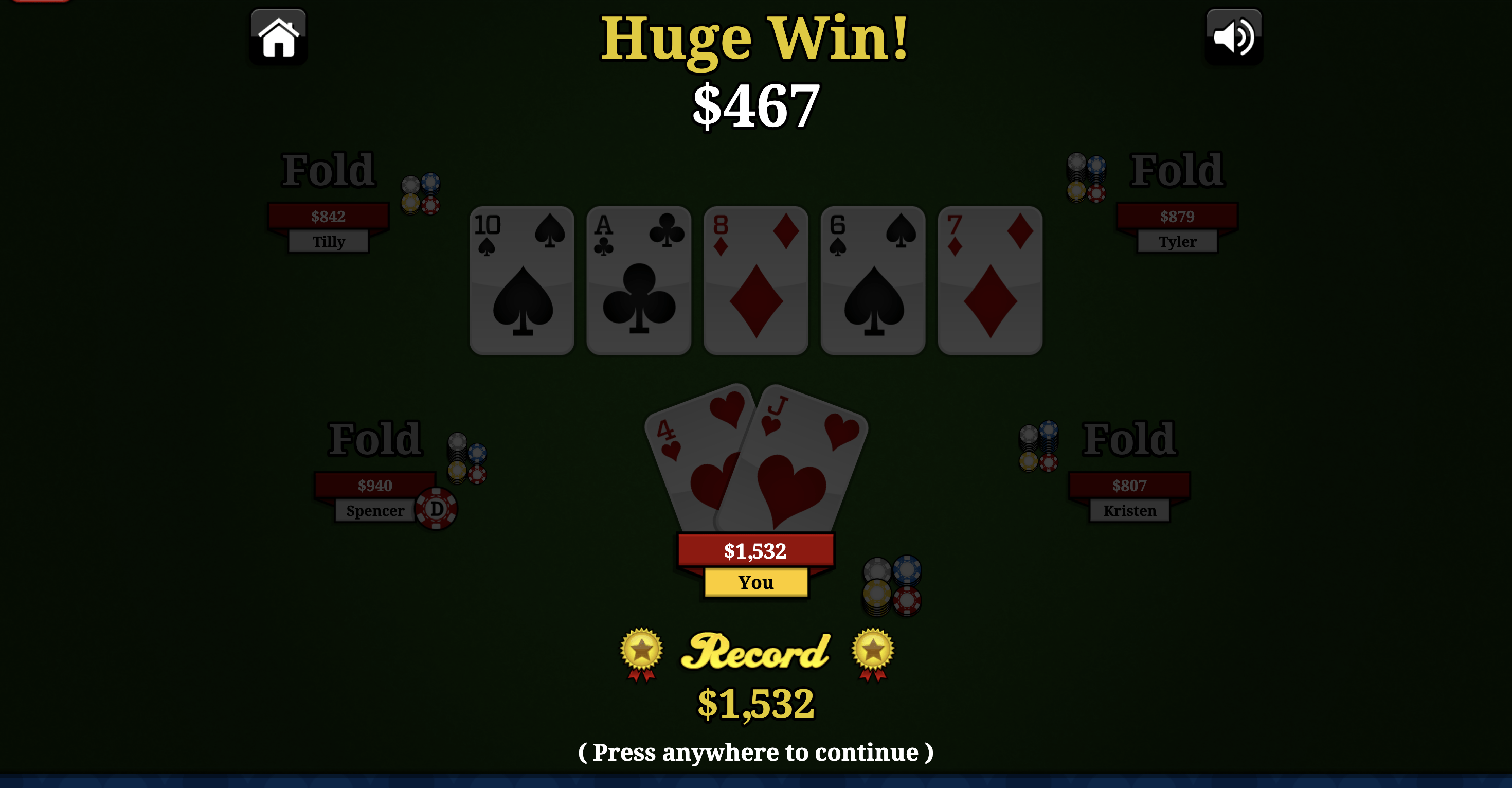I played poker on 247freepoker.com/, and each round consisted of five players, including myself. Although I played with others that had names, I wasn’t sure if they were actual people or bots, and there was no way for us to communicate while playing together. We played Texas Hold’em. I do think that poker is designed to be addictive. I noticed that as I played, I felt enticed to play again no matter the outcome of the round. If I won, I wanted to play another hand so that I could maintain the high I got from winning. Additionally, as I won more money, I felt it was okay for me to play another round because I was up, so I was simply playing with the margins that I had earned. On the flip side, if I lost, I wanted to play another round in an effort to redeem myself and win back any of the money I had lost. The element of luck present in the game also created this feeling of wanting to play again and get a reversal of my previously bad luck; every loss made me think, “Let me try one more time, I’m sure I’ll get lucky next time”. An interesting cognitive dynamic was exposed: when I won, I found myself attributing my win to skill and talent whereas all of my losses were blamed on bad luck. In this way, I think players are hooked and keep playing both when they win and when they lose. The financial aspect is also a significant factor in its addictive nature. The possibility of making significant profits or experiencing big wins can be enticing, although admittedly less so online than in person.
The unpredictability of outcomes and the potential to win or lose money can trigger a rush of adrenaline and excitement, leading to an addictive experience. There is an allure to the randomness as the game feels fresh and exciting which makes the predictable and repetitive structure of the game continue to be fun. Players keep coming back to see what their next hand will be and to see if it will measure up compared to the hands of the other players.
Poker is often played in a social setting, whether it’s at a casino, a home game, or online. The social aspect of the game, including interaction with other players, competition, and the opportunity to outwit opponents, can be highly rewarding and addictive. However, since this was an online game, there was zero social interaction, so that factor didn’t contribute to the addictive nature of the game.
Overall, there are many factors that contribute to the addictive nature of poker, and players should be very aware of the existence of these factors before game play.



